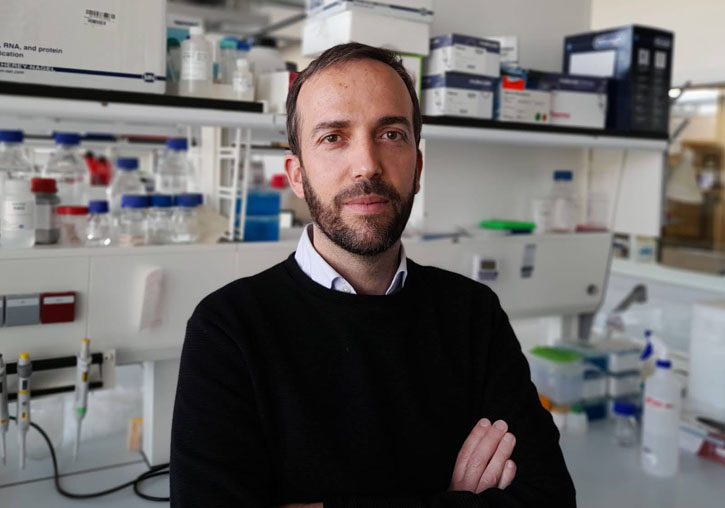Users
Social media
- More details here...
- Address
Parc Científic de la Universitat de València C/
Catedrático Agustín Escardino, 9
46980 Paterna (Valencia) Spain - Email:
iu.i2sysbio@uv.es - Phone:
(+34) 963544810
- Address
Links
Europe finances Rafael Sanjuán's research on viral threats to wildlife with 2.43 million

Investigation
Europe finances Rafael Sanjuán's research on viral threats to wildlife with 2.43 million

Rafael Sanjuán, researcher at the Institute of Integrative Systems Biology (I2SysBio), a joint center of the University of Valencia and the Higher Council for Scientific Research and professor of Genetics at the UV, leads a project on the threats of wildlife viruses that has received two and a half million euros from the European Research Council (ERC) in the Advanced Grants modality. These are the largest grants awarded by the main European research organization, which today published the list of projects awarded.
Experimental Virology for Assessing Disease Emergence Risks (EVADER), Experimental virology to evaluate the risks of disease emergence, is the title of the project led by Sanjuan, whose objective is to provide crucial clues about viral emergence, using experimental methods from the fields of virology and evolutionary biology.
“This is excellent news for us, the I2SysBio and our University, since these projects are awarded to very few researchers. Personally, I am extremely grateful to the ERC for granting this third project, after having also allowed me to enjoy Starting Grant and Consolidator aid. We are going to investigate viruses hidden in nature, of which at the moment only the genetic sequence is known. We will reconstruct parts of these viruses in the laboratory using synthetic biology to better understand how they work. This will allow us to know more about their propensity to infect human cells and, therefore, the risk that these viruses pose," highlighted Sanjuán.
New human viruses that cause diseases that originate in animals are a growing concern. Their emergence is also a little-known process. The COVID-19 pandemic has shown that combating wildlife viruses is an urgent challenge and that is why the scientific community has recently launched massive sequencing programs with which to characterize wildlife viruses, if It is not yet known how these viruses work and whether they can potentially infect humans. Furthermore, isolation and cultivation of viruses from wildlife is often not feasible due to current technical obstacles and current biosafety concerns.
This new frontier research may reveal repeatable evolutionary pathways that could improve outbreak predictions and increase the feasibility that broad-range antiviral therapies can be used to combat emerging viruses.
Rafael Sanjuán is a full professor in the Department. of Genetics at the University of Valencia and principal investigator of the Experimental Evolution of Viruses group at the Institute of Integrative Systems Biology (I2SysBio), a joint center of the University of Valencia and the CSIC. His work focuses on the study of the mechanisms responsible for the creation and maintenance of genetic variation in viruses and the analysis of viral evolution from an experimental perspective. Sanjuán has published more than 100 research articles on viruses and evolution and has obtained funding from the ERC practically uninterruptedly over the last 15 years. In addition, it is involved in the fight against COVID-19 by searching for new antiviral compounds and contributing to the implementation of epidemiological surveillance tools.
Advanced Grants
This year, more than 2,500 proposals for Advanced Grants have been submitted to the European Research Council, of which 209 have been accepted, for which it has been awarded 507 million in total. Eleven of these grants have been granted to Spanish projects. These are projects led by senior researchers, with a duration of five years and which can be on any area of knowledge. These are projects with an innovative nature, high impact in their research area and an excellent scientific perspective.
Resolution with the list of awarded projects:
https://erc.europa.eu/sites/default/files/document/file/erc-2020-adg-results-ls.pdf
Rafael Sanjuán's research group: https://www.uv.es/rsanjuan/


